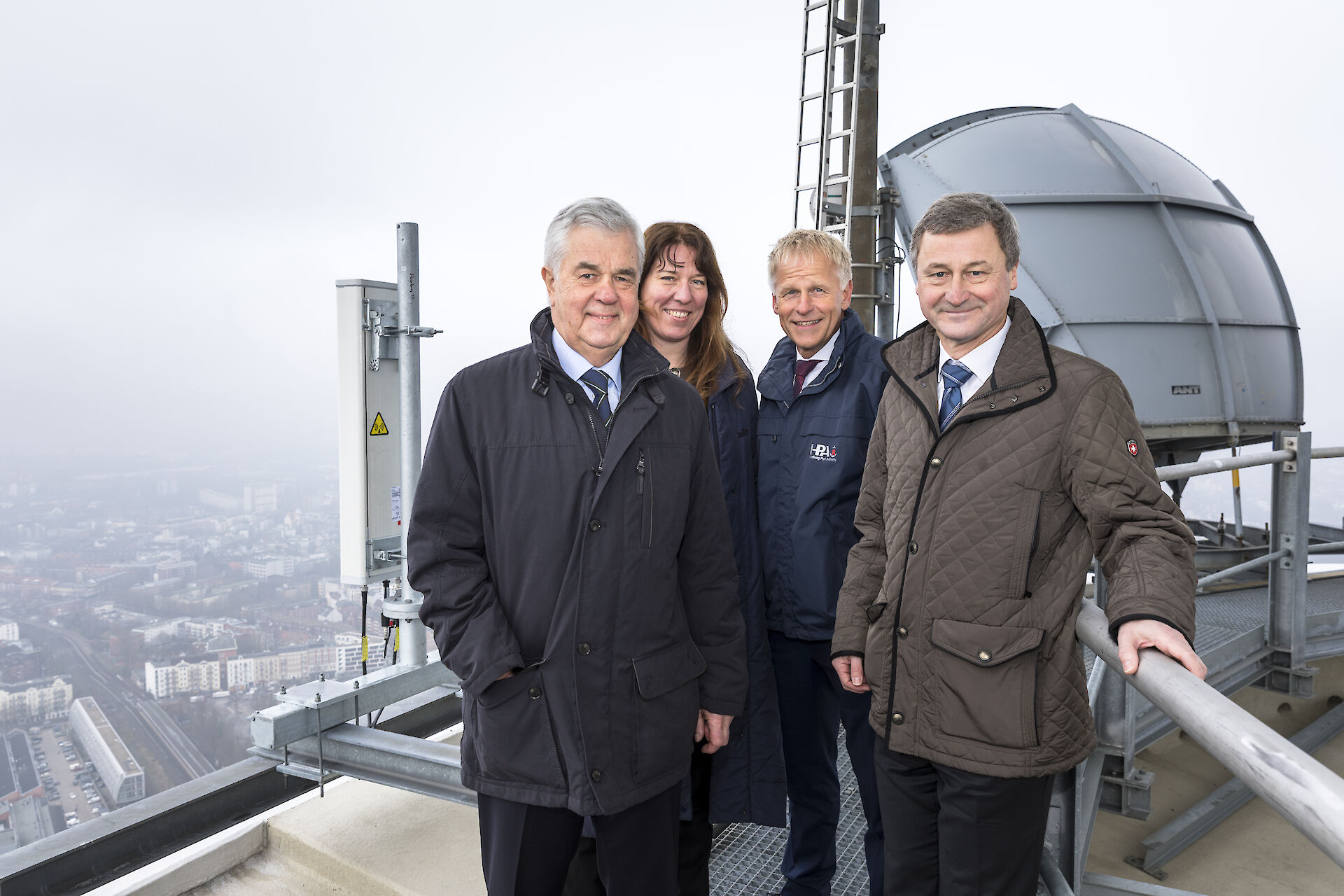02 Feb 2018 09:44
Economy
The Port of Hamburg is the testing ground for 5G, the next generation mobile standard that is set to transform communications. After six months of preparation the project partners - Hamburg Port Authority (HPA), Deutsche Telekom and Nokia - have now launched a testbed that stretches across some 8,000 hectares of port area. A base station has already been installed on Hamburg’s television tower, over 150 metres up in the air.
The testbed in the Port of Hamburg has primarily been set up to test 5G applications in an industrial environment. Telecommunications networks for industrial applications must be ultra-reliable and highly secure as well as support multiple use cases. The application needs of the Port of Hamburg are diverse and the requirements on networks are particularly high. For instance, mobile networks will be relied on to co-ordinate traffic lights within the port area and to collect and process environmental data in real time. On top, virtual reality applications will be deployed to manage the infrastructure better and thus make it safer.
The project partners run the trial 5G network to determine if the use cases, each of which has different data transport requirements, function reliably in a single network. The 5G trial network is partitioned into virtual networks - so-called network slices - which are then customised to meet specific port application needs. For example, the separate virtual networks - or slices - support traffic light co-ordination and environmental data transmission. Network slicing in 5G networks delivers greater network flexibility and supports the port’s numerous and varied use cases. The Port of Hamburg will be the first location in Germany where a network with several network slices will be tested under real life industrial conditions.
The 5G trial programme in the Port of Hamburg forms part of the two-year 5G MoNArch research project (5G Mobile Network Architecture for diverse services, use cases, and applications in 5G and beyond). 5G MoNArch aims to put 5G mobile network architecture into practice by deploying 5G network slicing in real life test environments and use the insights gained to review and improve existing concepts. While the testbed in Hamburg is primarily used to trial the integration of 5G into traffic and infrastructure management systems, the second testbed of the project in Turin focuses on multi-media applications. As a 5G Infrastructure Public Private Partnership (5G-PPP) Phase II project 5G MoNArch is co-funded by Horizon 2020, the European Union’s Framework Programme for Research and Innovation.
“5G offers a level of security, reliability and speed that current mobile networks are unable to match. It provides the HPA with a wholly new set of application options,” explains Jens Meier, CEO of the HPA. “The testbed allows us to study the future technology and co-shape the standard, which will not only benefit the port but the entire city of Hamburg.”
“The testbed in Hamburg is a pivotal step towards adopting 5G technology,” says Claudia Nemat, Member of the Management Board of Deutsche Telekom, Technology and Innovation. “We need practical experience and the Port of Hamburg is a perfect testing ground. We want to understand what we need to do to best adapt our network to meet our customers’ specific requirements. The industry and the logistics sector in particular will benefit from 5G as a strong lever for a wide range of applications.”
Peter Merz, Head of End-to-End Mobile Network Solutions of Nokia Bell Labs, says, “The 5G trial programme in the Port of Hamburg opens the door to a whole new world of business applications that have the potential to change a lot of sectors. The aim is to considerably speed up industrial processes and make them more flexible. We will test all that in Hamburg under real life conditions for the first time. The importance of the project simply cannot be overstated.”
What is 5G?
5G is seen as the communication standard of the future; an entirely new network concept that combines terrestrial and mobile networks. Unlike technological advances of the past, which solely focussed on increasing broadband width and speed, 5G will support a wide range of use cases that all have different speed, latency, security and capacity requirements. 5G will play an important role in new application scenarios created by the internet of things and Industry 4.0. Besides the manufacturing industry the logistics sector in particular will benefit from 5G mobile technology.

